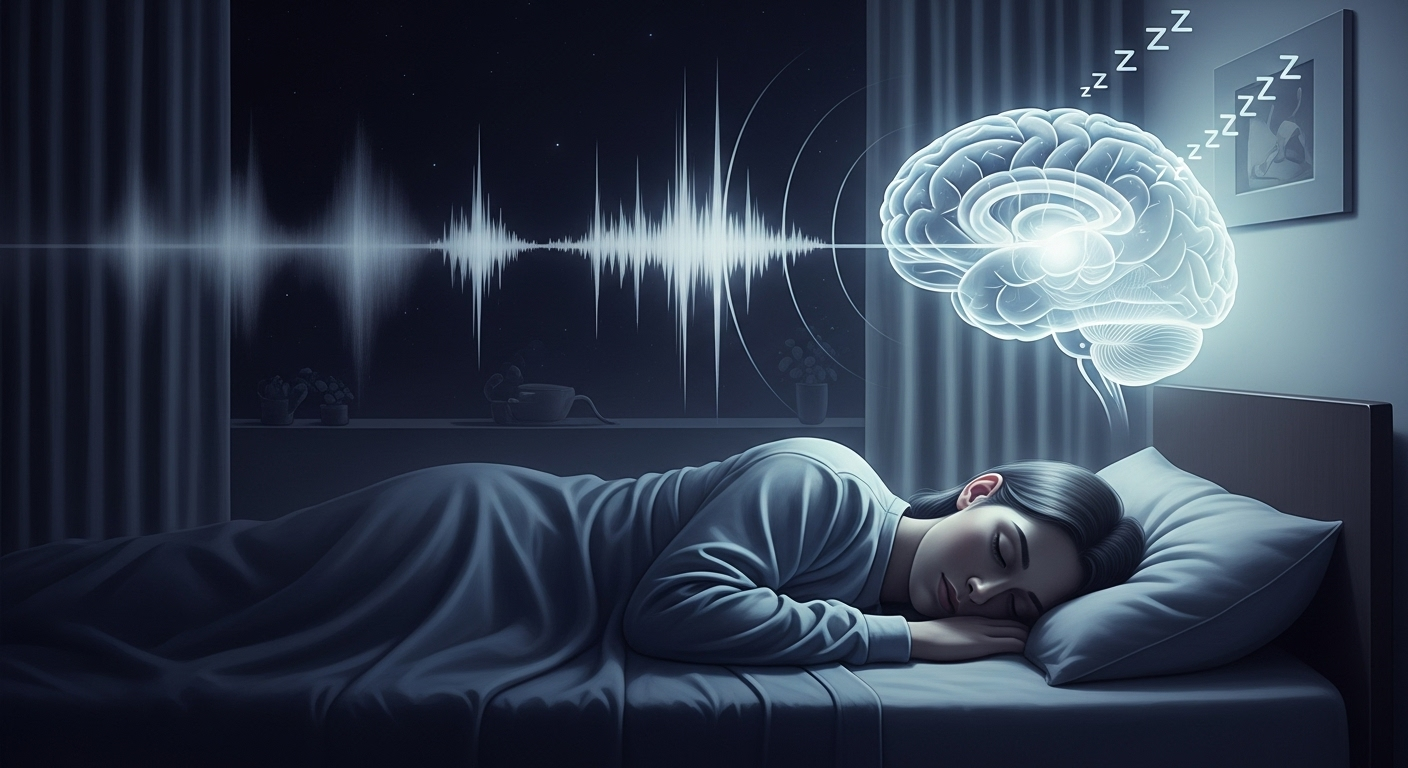Ever been jolted awake by the faintest creak of a floorboard, a distant dog bark, or even your partner’s gentle snore, while the person next to you sleeps blissfully through a literal hurricane? If you have, you’re not alone, and science just gave us a fascinating peek into why some of us are champion sleepers, while others are lightweights when it comes to nighttime noise.
Turns out, your brain’s got its own volume control, and it’s wildly different for everyone.
For years, it felt like a personal failing, right? Why can my friend sleep through anything, but I wake up if a butterfly farts in the next county? Well, a new study has shed some light on this nocturnal mystery, and it’s pretty darn cool. Neuroscientists have found that there’s a considerable variation between people in how strongly sleep actually “turns down” sounds.
Think of it like your brain having a built-in volume knob for the world. For some, sleep cranks that knob way down, almost to mute. For others? It barely budges, leaving them much more sensitive to every little bump in the night. This isn’t just about being a “light sleeper” in a vague sense; it’s about a measurable difference in how your brain processes auditory information while you’re catching Zs.
The Brain’s Secret Night Shift
Here’s the kicker: even when you’re deep in slumber, your brain isn’t completely offline. It’s still processing sounds to some extent. It’s not like hitting the “off” switch; it’s more like putting a very thick blanket over the speakers. But the thickness of that blanket? That’s where the individual variation comes in. Some brains are wrapping themselves in a soundproof vault, while others are using a sheer curtain.
This continuous processing is why, even if you don’t fully wake up, disruptive noises can still impact your sleep quality. Your brain might be registering that sound, leading to micro-arousals or lighter sleep stages, even if you don’t remember them the next morning. And we all know what happens after a night of interrupted sleep: hello, zombie mode!
So, What’s a Sensitive Sleeper To Do?
Given that sound continues to sneak into our subconscious world, the study reinforces something we intuitively know: maintaining a quiet sleeping environment is a genuinely good idea. It’s not just about preventing full-blown awakenings, but about ensuring your brain can truly dial down and get the restorative rest it needs.
- Earplugs or White Noise: These aren’t just for heavy snorers anymore. They can be your best friends.
- Soundproofing: Simple solutions like draft stoppers under doors or heavy curtains can make a difference.
- Bedroom Sanctuary: Make your bedroom a true haven, free from digital distractions and unnecessary noise.
- Communicate: If you share your space, a little conversation about nighttime habits can go a long way. Maybe your partner’s late-night gaming sessions are louder than they think!
Ultimately, understanding that our brains are wired differently when it comes to sleep and sound can be a huge relief. It’s not that you’re “bad at sleeping” or overly sensitive; it’s just how your unique brain attenuates the world while you’re dreaming. So, let’s all give our brains a break and aim for that sweet, sweet silence. Your well-rested self will thank you.
